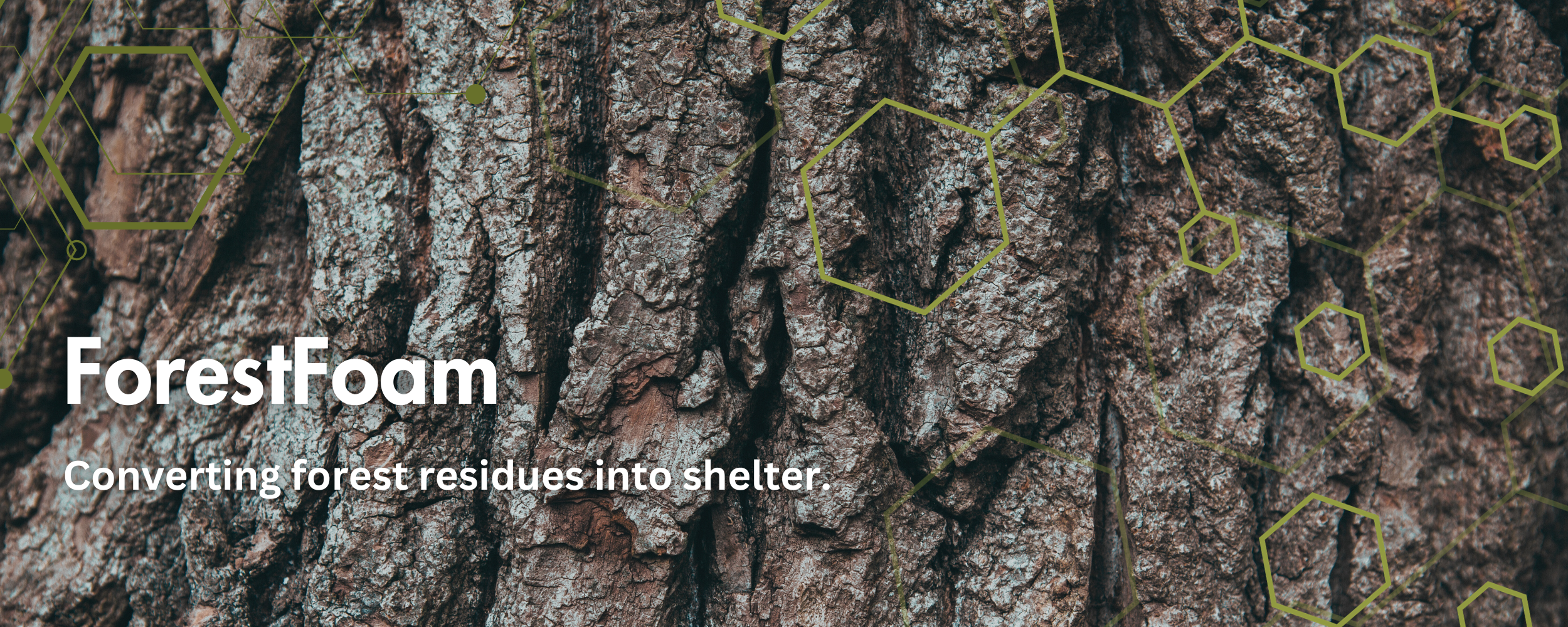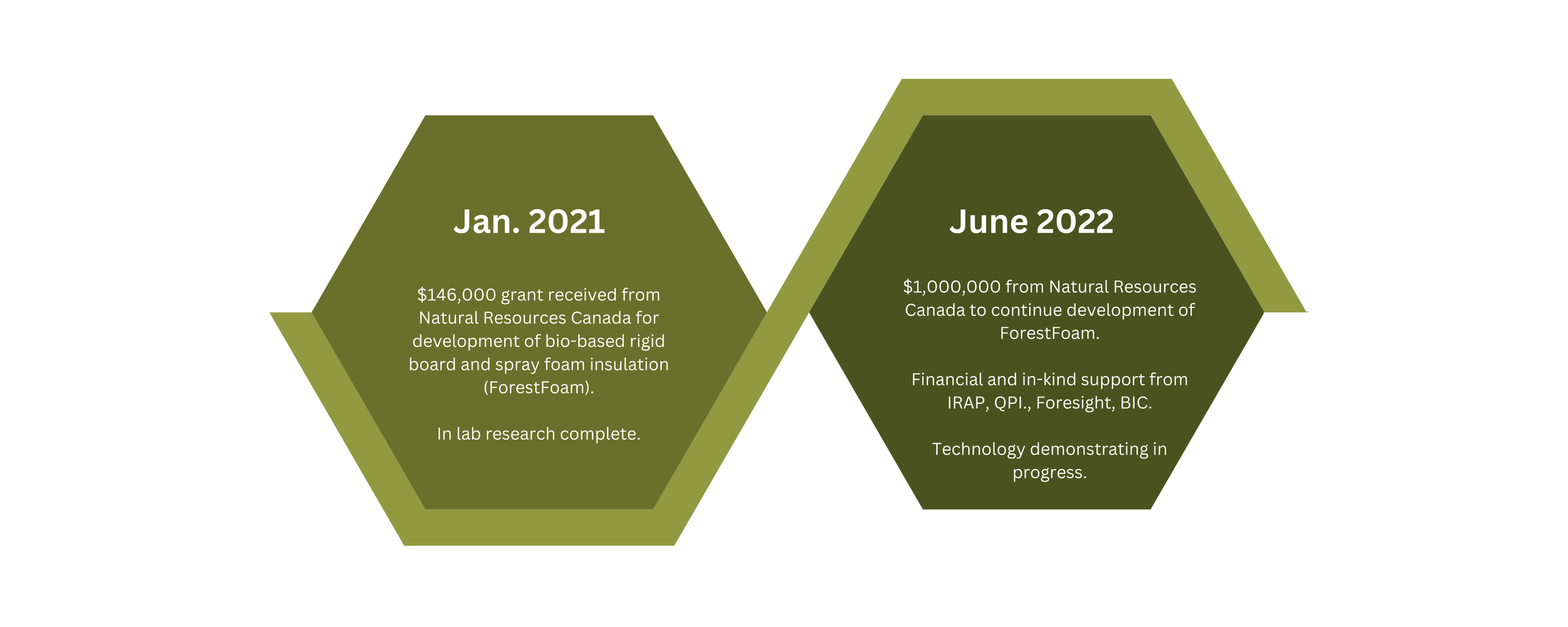The planet depends on forests.
A 2023 report from the United Nations Environment Programme Yale Center for Ecosystems + Architecture states in no uncertain terms that for the planet to reach net-zero, we urgently need to revolutionize the forestry industry.
And simply cutting out our use of wood and timber products isn’t an option.
How can we work in greater harmony with our forests to use their natural resources while ensuring they thrive?
Why Forest Foam?
Thermal construction insulation made from low-value forest and forestry residues that can be fully recycled back into production. We like to think of it as our infinity product.
And because that isn’t ambitious enough, we are using every bit of feedstock that goes into the facility and water utilization is minimized by a recovery process and recycled back into the production, thereby creating virtually no waste in the foam production.
The raw material for Plantee's foams is derived from low-value forest residues that would otherwise be burned or degrade into carbon dioxide. This enables energy and cost savings during the production process and captures the carbon for the lifetime of your building and even longer. Meaning, this ‘greener’ alternative won’t cost you more.
ForestFoam can be used to directly replace EPS for most applications. It has the same thermal performance and mechanical properties in addition to being breathable to water vapour while still maintaining airtightness.
more about ForestFoam
-
Our insulation boards are primarily made from wood fibers, which are a sustainable and eco-friendly material.
-
The inherent porosity of wood fibers allows them to be water vapor permeable, meaning they don’t retain moisture but release it back into the surroundings. Additionally, we are looking to enhance the foams with water-resistant additives for extra protection against leaks.
-
Yes. The product is designed to be durable and long-lasting in building applications, while utilizing biodegradable ingredients. Additionally, it can be reconstituted in water at its end-of-life, supporting its biodegradability.
-
The R-value will vary based on the specific formulation and thickness of the board. However, our boards are designed to be competitive with other insulation products in the market such as EPS.
-
Yes, we are working on incorporating fire-resistant additives to enhance the safety profile of our insulation boards.
-
We are committed to providing a competitive price point while ensuring superior performance and eco-friendliness.
-
Our insulation boards are designed to meet or exceed the building code requirements in both Canada and the USA. We are working on rigorous testing and will look to certify the product in the near future.
-
We recommend reaching out to our project team for potential partnerships, collaboration, and distribution opportunities.



